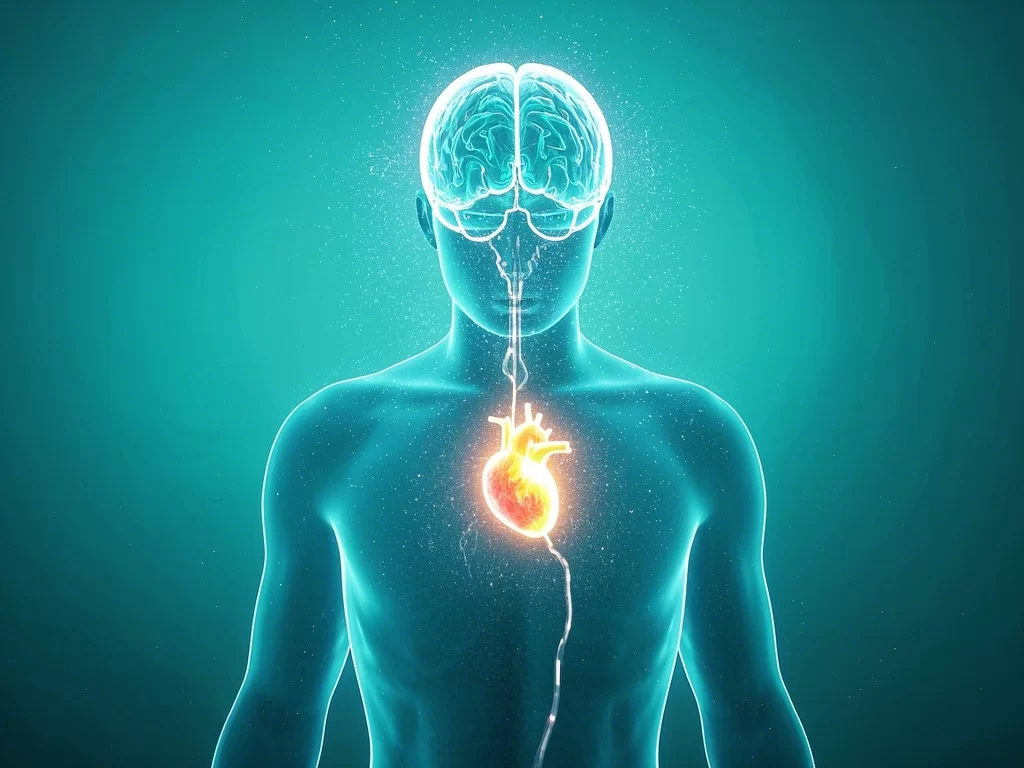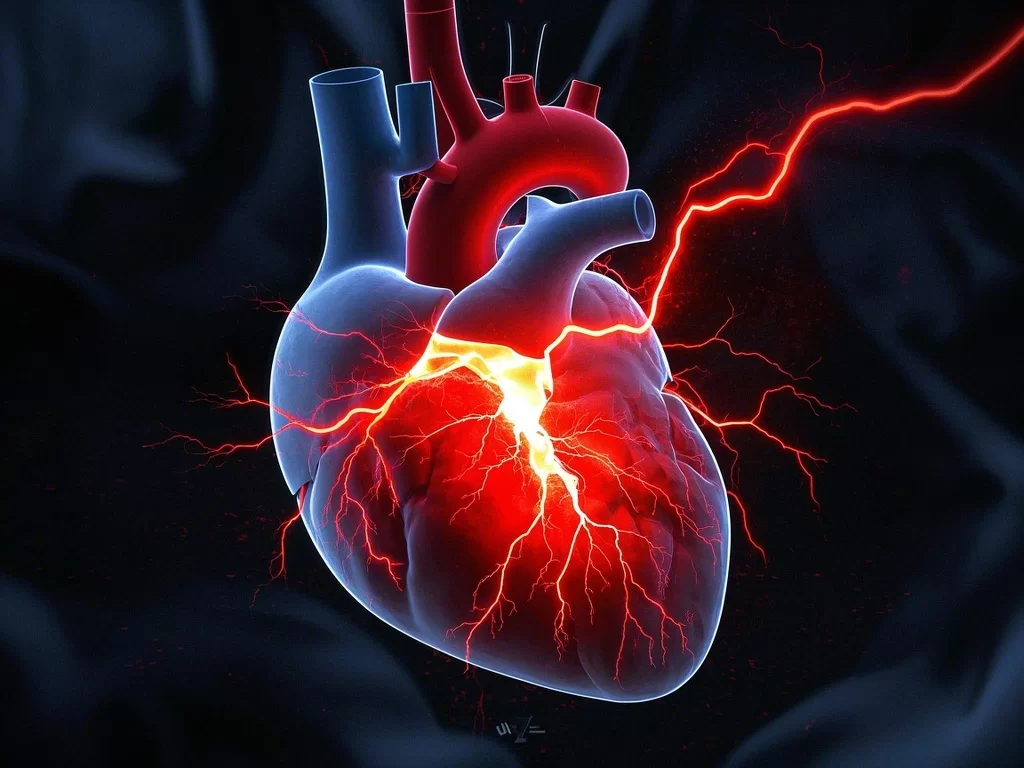Introduction: The Mind-Body Connection Explained

Mental and physical health aren’t just linked—they’re two sides of the same coin. Think of your body like a car: if the engine (your mind) is overheating, the whole vehicle (your physical health) suffers. Research shows that 80% of chronic illnesses, from heart disease to diabetes, are worsened by unmanaged stress, anxiety, or depression.
In this guide, we’ll dive into the science behind this connection and share actionable tips to protect both your mind and body.
1. Stress: The Silent Killer of Physical Health
Cortisol – Your Body’s Alarm System
When stress hits, your adrenal glands pump out cortisol, the “fight-or-flight” hormone. Short-term, this helps you dodge deadlines or sprint away from danger. But chronic stress? It’s like leaving your car engine running 24/7. Over time, high cortisol levels can:

- Wreck Your Metabolism: Cortisol triggers fat storage, especially around the belly, increasing obesity risks.
- Strain Your Heart: Prolonged stress raises blood pressure and LDL (“bad” cholesterol), directly linked to heart attacks.
- Gut Trouble: Ever felt “butterflies” during stress? Cortisol disrupts gut bacteria balance, leading to bloating, IBS, or ulcers.
Pro Tip: Try mindfulness apps like Headspace (external link) to lower cortisol naturally.
2. Anxiety: More Than Just Nervousness
When Worry Becomes Physical

Anxiety isn’t just mental—it’s a full-body experience. Imagine your brain sounding a fire alarm daily. Physical symptoms include:
- Short-Term SOS: Rapid heartbeat, sweating, dizziness (your body prepping for “danger” that isn’t there).
- Long-Term Damage: Chronic anxiety doubles your risk of migraines, muscle pain, and even autoimmune disorders like lupus.
Case Study: Sarah, a 35-year-old teacher, developed chronic neck pain from years of clenching her jaw during anxiety attacks. Physical therapy + cognitive behavioral therapy (CBT) saved her career.
3. Depression: The Body’s Hidden Battle
Beyond Sadness – The Physical Toll
Depression often hides behind physical symptoms:
- Energy Drain: Fatigue so severe it mimics chronic fatigue syndrome.
- Unexplained Aches: Joint pain or headaches with no clear cause (due to inflammation).
- Appetite Swings: Overeating or loss of appetite, leading to vitamin deficiencies or obesity.
Shocking Stat: People with depression have a 40% higher risk of heart disease due to inflammation and poor sleep habits.
4. Immune System – Your Mental Health’s Bodyguard
Stress = Open Door for Germs
Chronic stress slashes your white blood cell count, leaving you vulnerable to infections. For example:
- Frequent Colds: Stressed individuals catch 2x more colds annually.
- Slow Healing: Stress delays wound recovery by up to 40%, per Harvard studies.
Boost Immunity: Try yoga or tai chi—they reduce stress hormones and strengthen immunity.
5. Sleep & Mental Health: The Vicious Cycle
Why Anxiety Steals Your Zzz’s
Poor sleep worsens mental health, and vice versa:
- Anxiety’s Night Shift: Racing thoughts at night? That’s cortisol keeping your brain in “alert mode”.
- Depression’s Trap: Oversleeping (9+ hours) disrupts circadian rhythms, deepening fatigue and sadness.
Fix It: Use weighted blankets (Amazon link) to reduce nighttime anxiety.

6. Exercise – The Ultimate Mood Booster
Sweat Your Way to Happiness
Exercise releases endorphins, your brain’s natural antidepressants. Even a 10-minute walk can:
- Lower Anxiety: By 50% in studies.
- Sharpen Focus: Exercise boosts BDNF, a protein that repairs brain cells.
Try This: Dance to your favorite playlist—it combines cardio, joy, and stress relief!

7. Gut-Brain Axis: Your Second Brain
Why Your Gut Controls Your Mood
Your gut produces 90% of serotonin (the “happy hormone”). Poor mental health disrupts this, causing:
- Digestive Chaos: Bloating, diarrhea, or constipation from imbalanced gut flora.
- Mental Fog: Low serotonin = higher depression/anxiety risk.
Fix Your Gut: Eat probiotic-rich foods like kimchi or kefir (internal link to diet guide).

8. Chronic Illness & Mental Health: A Two-Way Street
Living with Diabetes or Arthritis? Protect Your Mind
Managing chronic pain or medications is exhausting. Tips to cope:
- Join Support Groups: Shared experiences reduce isolation (link to American Chronic Pain Association).
- Mind-Body Therapies: Acupuncture and meditation cut pain perception by 30%.
9. Ignoring Mental Health: A Recipe for Disaster
The High Cost of “Toughing It Out”
Unaddressed mental health issues can lead to:
- Heart Disease: From chronic inflammation.
- Weakened Bones: Stress leaches calcium, raising osteoporosis risk.
Act Now: Use free screening tools like Mental Health America’s online quiz (external link).
10. How to Thrive: Actionable Tips
Simple Habits for a Healthier You
- Eat the Rainbow: Antioxidant-rich foods fight inflammation (link to “Brain-Boosting Recipes”).
- Sleep Hygiene: No screens 1 hour before bed—blue light disrupts melatonin.
- Talk It Out: Therapy apps like BetterHelp offer affordable counseling.
Conclusion: Your Health is a Team Effort

Mental and physical health are lifelong partners. By managing stress, staying active, and seeking help early, you’ll build resilience against life’s challenges. Remember: a healthy mind fuels a healthy body—and vice versa!
FAQs
1.Can anxiety cause high blood pressure?
Yes! Chronic anxiety keeps your arteries tense, raising BP over time.
2.What’s the best exercise for depression?
Aerobic workouts (e.g., swimming, cycling) boost serotonin fastest.
3.How does gut health affect anxiety?
An unhealthy gut reduces serotonin production, worsening anxiety.
4.Can therapy improve physical health?
Absolutely—CBT reduces chronic pain and inflammation in 60% of patients.
5.What foods hurt mental health?
Sugar and processed carbs spike cortisol, worsening mood swings.
